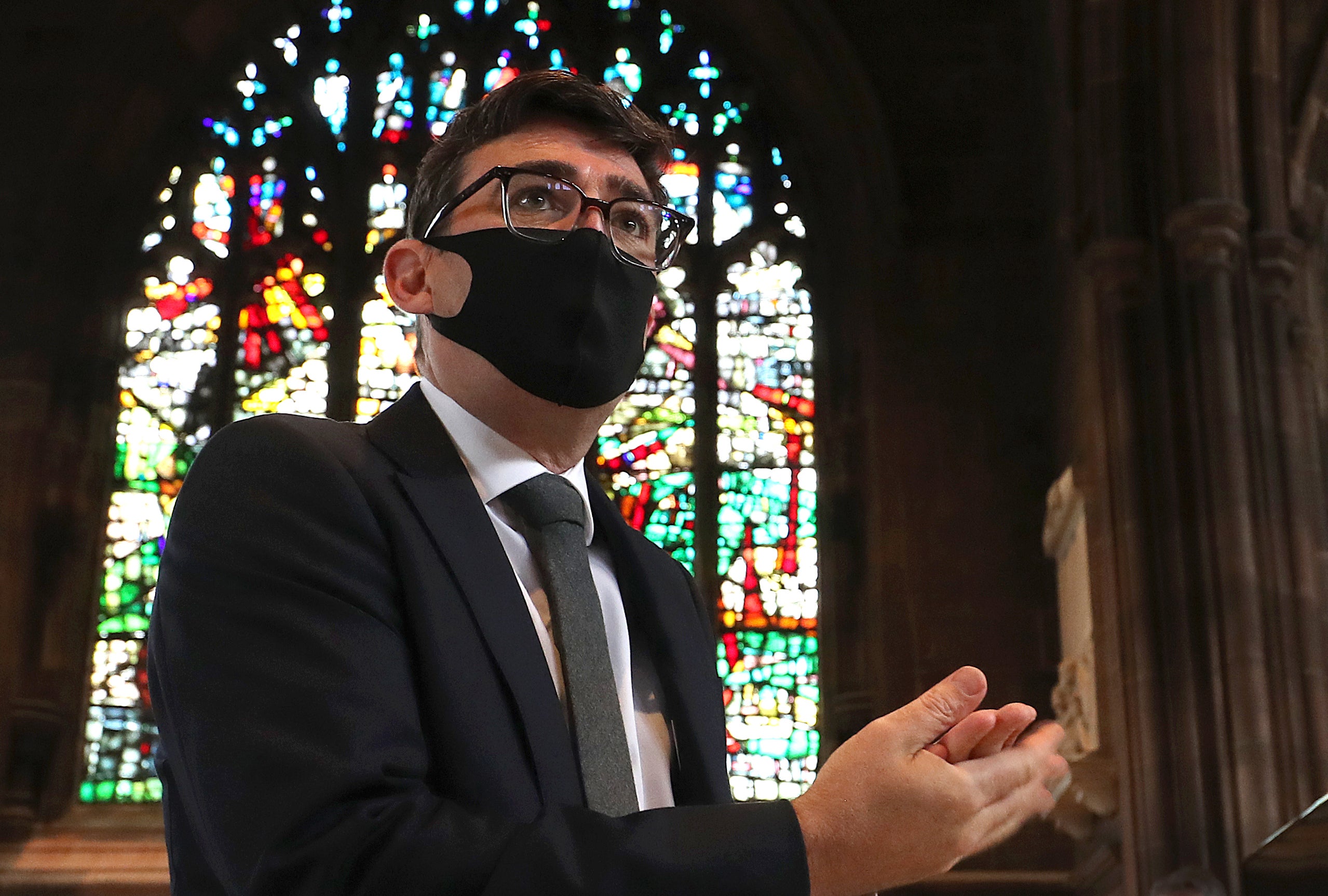Will Andy Burnham help win back the red wall seats for Labour?
Boris Johnson won a slew of longstanding Labour seats in the north of England last year: John Rentoul asks if he can hold on to them against a tide of anti-Westminster sentiment


Andy Burnham’s emergence as the warrior chief of the revolt of the north against coronavirus rules imposed by the government in London could have some unexpected effects on national politics. The mayor of Greater Manchester has mobilised northern identity as a way of putting pressure on Boris Johnson.
But by rallying the north against what he portrays as a distant and uncaring southern elite – saying on Tuesday that it was people “too often forgotten by those in power” who bear the brunt of large-scale restrictions – he could have an unexpected effect across the red wall seats that were decisive at the last election.
The secret of Johnson’s success in December last year was to use Brexit as leverage to win over blue-collar seats across northern England, the Midlands and north Wales – seats that had mostly returned Labour MPs to Westminster for a century.
Many Labour people simply didn’t believe it was possible for a posh southern politician – one who had been mayor of the Great Wen, no less – to appeal to their voters in the north. But the identity politics of Brexit trumped the class loyalties of the past, especially as Johnson offered a Labour-like programme of big public spending increases on the NHS, schools and police.
Now Johnson has discovered that identity politics can be used against him too. Burnham didn’t get what he wanted today, but he has lit a fire. He has learned a lesson from the Scottish National Party, which is that loyalty to parts of the UK can be exploited by the leaders of devolved administrations. All they have to do is blame Westminster for anything bad and wrap themselves in the flag of sub-UK identity.
Some of Burnham’s arguments on behalf of Greater Manchester didn’t make sense: he said he would accept tier 3 status if he won more money for the vulnerable; he also said he didn’t think tier 3 was necessary because his hospitals weren’t full; and besides, he didn’t think there was any evidence that tier 3 would work in controlling the virus.
But this isn’t just about rational argument; this is the politics of emotion. It is a long time since Drew Westen wrote his 2007 book, The Political Brain: The Role of Emotion in Deciding the Fate of the Nation, which foretold the gut appeal of Donald Trump in the US, but it is an analysis that continues to echo over here.
The coronavirus crisis has brought identities of place to the surface. We have seen it in Scotland, Wales and regions of England. We saw it in the protests in Cornwall and the Lake District against tourist incomers bringing the plague with them. And now we see it in the rage of (parts of) the north against measures imposed from London.
Burnham has put himself at the head of this reaction, speaking not just for Greater Manchester but for a wider northern identity. This is bound to have an effect across the red wall seats. Most of those constituencies have strong local identities, as Deborah Mattinson, the pollster, reported in her in-depth analysis of them, Beyond the Red Wall: Why Labour Lost, How the Conservatives Won and What Will Happen Next. The term “red wall” means nothing to the people who live there. And voters in County Durham would not feel that Burnham represents them. Most of their geographical identity is intensely local.
One of Mattinson’s focus group members in Accrington, for example, lives a few hundred yards from the town centre, but says she hardly ever goes “into town”; rarely travelling further than one or two streets from her home.
Yet all these places think of themselves as northern. They may not feel that they have much in common with each other, but Mattinson’s research revealed shared hostility towards London, Westminster, central government, and the south.
They felt not only that the north-south divide was real and unfair, but that the south had stolen resources from the north. One voter in Stoke, asked if he would ever go to London to go shopping, said: “No way! They’re not getting my money. They take enough from me as it is!”
The threat posed by the northern revolt to the Conservatives’ hold on red wall seats was confirmed by the formation last week of a Northern Research Group of Tory MPs. This is how Conservative factional politics works: the European Research Group is a Eurosceptic pressure group; the NRG is a lobby for the interest of the north.
By the next election, Brexit will be less of an issue, and northern resentment of London government is likely – thanks largely to Andy Burnham – to be more of one. It may be hard for Boris Johnson to hold on to his new friends from the north.




Join our commenting forum
Join thought-provoking conversations, follow other Independent readers and see their replies
Comments